|
Words by: Dr. Lucie Yammine Edited by: Dr. Conchi Izquierdo In honor of the “International Women and Girls in Science” celebrated on february 11th, we wanted to celebrate the contribution of women to the sciences. When we talk about women in Science, one of the first names that would come to mind would be the double Nobel Prize winner Marie Curie, Physics laureate in 1903 for her researches on the radiation phenomena discovered by Professor Henri Becquerel and Chemistry laureate in 1911 for the discovery of the elements radium and polonium. Or the 2020 Nobel Prize in Chemistry laureates Emmanuelle Charpentier and Jennifer Doudna for their discovery of the CRISPR-Cas9 system. However, awarded women are still an exception at receiving this recognition for their work. Since its launch in 1901, only 58 women were awarded the Nobel Prize in all categories and only 22 women (23, with Marie Curie winning twice) were Chemistry, Physics or Medicine laureates, when the total number of laureates for these categories is 631 laureates. In this article, we decided to acknowledge less publicly recognized women scientists for their work and contribution to the advance of science. This list is not exhaustive and many more women’s impact should be celebrated. We would love to know more about your role models and the women who inspired you in your scientific career. Tell us about it! ----------------------------------------------------------------------------------------------- 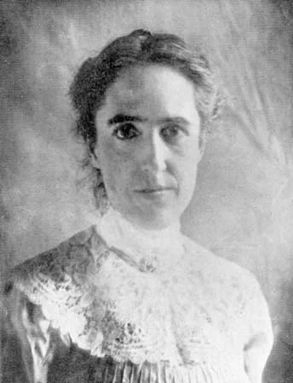 Henrietta Leavitt, astronomer (1868-1921) Henrietta Leavitt was a human “computer” at the Harvard College Observatory. The “computer” position was given to women tasked to observe the stars and analyze the data they collect. In 1912, while observing a class of variable stars called Cepheids, Leavitt discovered that their period was closely linked to their luminosity. Her discovery revolutionized Astronomy and led to the possibility of calculating the distance of variable stars to Earth. www.britannica.com 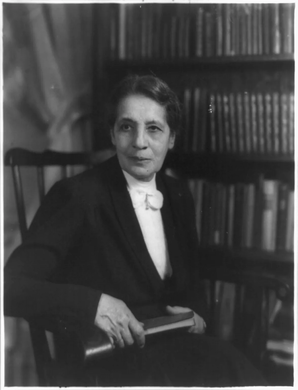 Lise Meitner, physicist (1878-1968) Lise Meitner was born in Austria in 1878, but built most of her career as a professor of physics in Berlin, Germany and then in Stockholm, Sweden. While she was in Berlin she started a collaboration with the chemist Otto Hahn, who stayed her long lasting collaborator even after the Jewish physicist Lise Meitner had to flee to Sweden when Nazi Germany rose in 1938. Together with Otto Hahn, they studied nuclear physics and their work led to the discovery of nuclear fission. However, Otto Hahn published their work under his name only and got all the credit for this major discovery by winning the Nobel Prize in chemistry in 1944. Meitner did get nominated several times afterwards to the Nobel Prize without ever being awarded. But her contributions didn’t go unnoticed as the element 109 Meitnerium was named after her and she went on to win many other prizes. Albert Einstein also called her Germany’s Marie Curie. www.britannica.com  Alice Ball, chemist (1892-1916) Although Alice Ball had a very short life, she was able to make breakthrough discoveries in the treatment of leprosy or Hansen’s disease. Alice Ball, an African American chemist, was born in Seattle and became the first woman to graduate with a Master’s degree from the University of Hawaii where she was then offered a professorship at only 23. She developed what was called the “Ball Method” that consisted into an safe, absorbable injection of chaulmoogra extract to treat leprosy. Unfortunately Ball died at 24 before publishing her work, and Samuel L. Dean, another chemist and later President of the University of Hawaii, stole her work to publish the method under his own name. It’s only years later that Ball was given credits for her revolutionary discovery. Alic Ball day is celebrated in Hawaii every four years on February 29th as a recognition of her contributions. www.biography.com  Barbara McClintock, biologist (1902-1992) Barbara McClintock is an American cytogeneticist who received her PhD at Cornell University. She studied genetic changes in maize. She built a theory about jumping genes that could determine the fate of a cell and allowing for diversity of cell types from the same organism. Although she was first criticized for her discoveries, her perseverance got her to win the first unshared Nobel Prize in Physiology and Medicine for a woman in 1983. www.nobelprize.org  Grace Murray Hopper, mathematician (1906-1992) Grace Murray Hopper was an American computer scientist and mathematician. She is the reason we say “there is a bug in my computer”. She was born in New York City and attended Yale where she received a PhD in mathematics in 1934. During World War II, she joined the navy and became a rear Admiral. She is known as one of the first programmers, and learned to program the first computer Mark I at Harvard University. For her contributions, she was awarded several Prizes, including Computer Science Man-of-the-Year Award and was the first woman to receive the National Medal of Technology in 1991. www.smoda.elpais.com  Dorothy Hodgkin, chemist (1910-1994) Dorothy Hodgkin made her way to obtain a PhD from the University of Cambridge in 1936. She spent her career mapping by crystallography the structure of penicillin and later insulin. Her work was essentially to be able to make synthetic versions that could be used in patients. Hodgkin was awarded a Nobel Prize for her work in 1964 and she remains to date the only British woman to ever be awarded this distinction. www.iucr.org www.nobelprize.org  Chien-Shiung Wu, physicist (1912-1997) Chien-Shiung Wu is a Chinese physicist, she attended the University of California, Berkeley. During World War II, she was recruited by Columbia University to be part of the Manhattan Project on the development of nuclear weapons. She then worked with Tsung-Dao Lee and Chen Ning Yang on the law of parity. Her two men colleagues were awarded the Nobel Prize in 1957, but she didn’t get recognition for her contribution. Chein-Shiung Wu in 1964: “I wonder, whether the tiny atoms and nuclei, or the mathematical symbols, or the DNA molecules have any preference for either masculine or feminine treatment.” www.biography.com www.carnegiestemgirls.org  Katherine Johnson, mathematician (1918-2020) Katherine Johnson is an American mathematician who has helped shape the space missions at NASA during the 1950-1960's. She was one of the first African American women to join NASA and work on complex calculations for the first American in space Alan Shepherd in 1961. John Glenn, the first man in orbit, specifically asked her to double check by hand the trajectory calculations of one of the first computers before launching. Johnson was then involved in subsequent NASA missions in space, including Apollo 11 flight to the moon. Katherine Johnson is celebrated as a pioneer African American woman in sciences. In 2015 she received the Presidential Medal of Freedom. The 2016 movie Hidden Figures depicts Johnson and two of her colleagues Dorothy Vaughan and Mary Jackson as human computers for NASA. www.nasa.gov  Rosalind Franklin, chemist (1920-1958) Rosalind Franklin is an English chemist and X-ray crystallographer who revolutionized DNA imaging. She worked as an associate researcher at King’s College London where she made her major discovery of DNA double helix structure, “Photo 51” in 1952. James Watson, Francis Crick and Maurice Wilkinsused Franklin’s x-ray image to confirm the 3D structure of DNA and used the image without her permission to publish their work on DNA structure. The three men received a Nobel Prize in Physiology or Medicine in 1962, while Franklin’s contribution was not acknowledged. Her story has since become the greatest example of sexism in science and academic professions. www.britannica.com www.sciencedirect.com ----------------------------------------------------------------------------------------------- Women have been shaping science for centuries, and continue to do so today. Their contributions are now better recognized and their work is inspiring new generations of female scientists to always move forward despite the difficulties.
Sources www.biography.com www.nobelprize.org www.nasa.gov www.wikipedia.org www.britannica.com www.news.yale.edu
1 Comment
Words by: Dr Rebecca Caeser Edited by: Dr Lucie Yammine, Dr Vacha Patel and Dr Rinki Saha Women in science have long gone underappreciated. INet-NYC did our part to redress this by hosting a Women in Science month. We featured a female scientist’s story and thoughts on our blog and social media (twitter and instagram) every day for the month of March. We hope many of you walked away from it feeling inspired, relieved that things are changing already, yet still driven for more change. Here are three themes that stuck with us: Motivation One of the themes that ran through all of our interviews was our interviewees love of science. Dr Bhama Ramkhelawon (NYU Langone) spoke for many when she said that her motivation comes from performing “an experiment to address a question - and it works. Feels fantastic. Feels like the first bite of ice cream on a hot summer day”. Many also mentioned that their motivation is driven by a sense of doing something meaningful which is often fuelled by speaking to patients and/or their families. But several argued that doing great science is not enough to progress equality. Dr Linda Molla (Regeneron Pharmaceuticals) believes that we need to shift our thinking about how leaders within science are rewarded. Currently, individual successes are recorded, but we need to put more focus on “how they manage and help employees or trainees to develop to achieve their goals”. These efforts will be vital to achieving greater gender equity, and are often currently unrecognised. As Dr Molla says, addressing “ineffective management practices would overall create healthier academic lab environments and help retain women in science.” Several interviewees advised focusing on your productivity, rather than how many hours you put into a project. Dr Federica Valsecchi argued that "Being “workaholic” does not always mean being productive." A similar sentiment was shared by Dr Sandra Franco Iborra (New York Genome Center) who said that “one of the most dangerous rules is that you can’t have a work-life balance if you want to be a successful scientist”. We ought to let go of feeling guilty when not working 24/7. And Dr Itziar Irurzun Arana (AstraZeneca) had some good advice for staying motivated through adversity: “don’t be afraid of making the wrong choice, making mistakes is part of the path”. Family It’s no secret that women often feel a pressure to choose between starting a family and progressing their career. Dr Gayathri Srinivasan (Emory University) feels that “the roadblocks for women are that the biological clock and the tenure clock or climbing the corporate ladder are exactly at the same time. This makes for hard choices.” Yet, women should not feel like it’s either all science or nothing. Dr Elisa Venturini (Natera) gave some food for thought on this topic: “Mentors and colleagues who value our expertise will not make us choose. Finding that environment will not be easy, but we should not give up our dreams of starting a family, but rather we should focus on finding that workplace where we are valued even more because we have a family”. Our interviewees had some good tips on how to achieve a healthy work-life balance. In prioritising her work, Dr Lilian Lamech (Chemeleon) said “I often re-evaluate based on the needs of the coming weeks and make sure the goals are manageable. It’s also okay to say no." And as Dr Thu Huynh (Midwestern University) told us, “work-life balance means setting boundaries.” But they also argued for deeper structural changes, such as implementing better paternity and maternity leave, allowing for flexible work hours and affordable daycare for all. As Dr Hannah Meyer (Cold Spring Harbor) argues, women can’t fix equality on their own: “the burden of trying to make a change is often placed on the minority group, here women – this takes away from time that can be spent on research.” Visibility
One of the key obstacles to equality in science identified by our interviewees was visibility. Dr Karuna Ganesh (MSK) points out that “girls are steered away from STEM early on.” This lack of role models is damaging and leads to a shortage of women higher up the scientific career ladder. But role models don’t necessarily have to be celebrity scientists. As Dr Linda Molla (Regeneron Pharmaceuticals) said “If we want to impact change, each and every one of us needs to speak up in our workplaces”. Dr Gayathri Srinivasan (Emory University) agrees: “we will all have to come together as a society to improve women’s visibility in science”. Many suggested that we need equal representation and provide opportunities for junior/early career scientists. But to achieve this, there was a general consensus: we need male allies! Dr Alicia Perez Porro (CREAF) argues that “we need men to step down from manels, from all-men selection committees etc, and to fight with us for equal salaries, equal career opportunities, to take an active role for diversity and inclusion in STEM”. Lastly, a general advice that many would have given themselves if they were starting their career today was to look for mentors early on in their career! As Dr Triparna Sen (MSK) argued “The right mentor will guide you to seize opportunities, open doors for you, will be a sounding board as you make difficult career choices and will champion for you”. To dive deeper into all our female scientist life stories and thoughts on this topic, check out full interviews on our blog and also youtube channel! Dr Ariola Bardhi is originally from Albania. She moved to the US 12 years ago to pursue a college degree. She got interested in biomedical research and decided to attend graduate school in New York City. Her research focused on engineered immunotherapy for HIV treatment. During her PhD, Dr Bardhi co-founded INet-NYC in order to bring together and offer career opportunities to international scientists in New York City. She then got interested in careers beyond the bench and drug development process. She worked as a consultant for 2 years before she transitioned to a career in Medical Communication. She is currently a senior medical writer at BGB Group. 'You need to be truthful with yourself, understand what is important to you and then find avenues on how to make it work' 'Everybody is different. As long as you know what works for you, you are set up for success.' 'Be more open about the opportunities and enjoy the process instead of stressing out and focusing on what you are achieving.' Please, tell us a little bit about yourself: 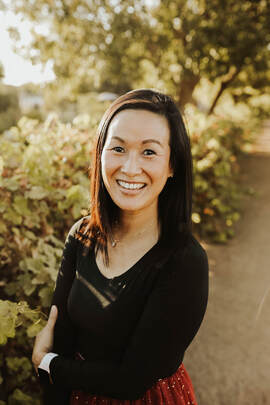 My CV tells a nice story about a girl who graduated with a Molecular and Cellular Biology degree from the University of Arizona, and moved to NYC to pursue her dreams of a PhD in Neuroscience. However, as Wei Ji Ma’s Growing up in Science series can attest- things on paper are rarely what they are in actuality. My real story is of a girl who had dreams of going to medical school, but lacked the credentials to do so straight out of college. I had a few key people take a chance on me, and with their help, I got into New York University’s Neural Science PhD program, where I ended up working in Dr. Eric Klann’s lab with an Italian postdoc who taught me everything she knew about neuroscience and to be honest, life. One constant of my education, was my interest in teaching, likely because of some of my own struggles as a student. As a result, I took it upon myself to seek teaching opportunities during my PhD and postdoctoral fellowship. From this, I was teaching assistant at NYU, and an adjunct assistant professor at Hunter College. I am certain this teaching experience is what helped me earn the position I am currently in, which is an Assistant Professor of Biochemistry and Molecular Genetics at Midwestern University. At Midwestern, I am involved with the delivery of team-taught Biochemistry courses to healthcare professional students, and I run a small laboratory studying the effects of stress on memory and neuroenergetics. I am also married to a fertility specialist, and we live in Arizona with our two children (3 & 1) and our mini-golden doodle. 'For me, work-life balance means setting boundaries [...] and also not comparing myself to other people.' In your opinion, what is the best way to maintain work-life balance? Right now, a healthy balance for me means being able to spend quality time with my young children, while also finding time for myself and my husband. Whereas, 10 years ago, it meant making time for happy hour, exercise, dating, and learning more about myself. Needless to say, “life” has carried many different meanings for me since I started my PhD in 2010. Because women panels these days focus a lot on how to balance marriage and children, I would like to emphasize that no matter what “life” looks for you, a healthy work-life balance is so important. It was equally important to me to find a healthy balance as a single woman in NYC as it is now as a wife and mom. For me, this means setting boundaries. Acknowledging that I have to balance feeling burned out one week and underproductive another. Working at the same speed for me, all the time, is untenable, so I accept that my productivity will ebb and flow while keeping my goals in sight. A healthy work-life balance for me also means not comparing myself to other people. One thing my dad taught me is that someone will always have more than you, and someone will always have less than you. In science this is especially true and comparing my successes and failures to someone else’s is a breeding ground for arrogance and resentment. 'The dialogue has to change where women can make decisions that best suit their lives, without any judgements regarding which societal stereotype that woman is fitting into or breaking- especially since this seems to be the case with men.' What are your thoughts on the pressure that women face in having to make a choice between having children and progressing their career? Too often, people assume all women want to get married and have children. Now, it is not uncommon to find women who have no plans for either OR have plans for one without the other. I think more broadly stated, women are judged for picking their passions and pursuing them full throttle. First, the dialogue has to change where women can make decisions that best suit their lives, without any judgements regarding which societal stereotype that woman is fitting into or breaking- especially since this seems to be the case with men. If we are successful in accomplishing this, I hope that a woman can make the decision to have kids and how it will impact her career will be a non-issue. At the end of the day, career expectations should be the same for a woman regardless of whether she is married, or has children, which relates to my opinion about work/life balance. I truly hope that people do not expect less of me because I have children, and I certainly do not expect more of my female colleagues who do not have children. In this regard, I hope that a woman will feel safe to make decisions regarding her personal life and not feel that it will affect her career whatsoever. I also recognize that I come from a privileged background where I have a supportive partner, the ability to afford childcare easily and a lot of family nearby. The absence of any one of these things would make parenting more challenging, and is a reminder of the amount of support a woman has to be in possession of in order to comfortably have children. 'The PhD and postdoc life can be lonely. [...] One of the secrets to success in this field, is feeling supported, even if it means finding the support on your own.' What advice would you give yourself if you were starting your career today? What would you say to encourage other women to persevere in their career path? If I could offer a piece of wisdom to another woman in STEM it would be this: The PhD and postdoc life can be lonely. Nobody else in the world is studying exactly what you are studying and doing it exactly the way that you are doing it. BUT, women are unified in our experiences, struggles, and wins. Make it a point find people, especially women who seemingly have everything you're working towards, and talk to her. If it’s an assistant professorship plus having children, talk to her! If it’s a K99/R00 in a high-powered lab, talk to her! If it’s a thriving lab at a PUI, talk.to.her!! Chances are, she experienced similar struggles as you, and can share what she did to overcome her challenges. One of the secrets to success in this field, is feeling supported, even if it means finding the support on your own.
If I could give my former self advice, it would be that progress is progress. Many of my proudest accomplishments are the ones that don’t come in the form of an acceptance, degree or certificate, but it was hard to see or appreciate at the time. Moreover, getting a PhD and pursuing a postdoc can feel strange during our mid 20-30s when friends are already advancing in their careers after graduating college. It gives the illusion that we are in stasis, but that couldn’t be farther from the truth. After all, it is a real job to work as a PhD or a postdoc, even though you’re pursuing a degree and potentially earning less than your friends. Ok, I might also reassure myself that yes, I can eventually raise two children, finish my PhD and teach medical students about the Kreb’s cycle. Please, tell us a little bit about yourself:
'Implementing changes to reward good leadership and provide constructive feedback to address ineffective management practices would overall create healthier academic lab environments and help retain women in science.' What do you think the roadblocks are to representation of women in science? How can we improve women’s visibility in science? I think better visibility and representation of women in science can be achieved by creating an environment that retains women that are interested in a science career. The current academic system does a great job at rewarding individual successes of leaders of labs as measured by number of high impact scientific papers published and number of grants rewarded, but I think that is not enough. Rewarding leaders for how they manage and help employees or trainees to develop to achieve their goals (within or outside an academic science) should also be rewarded and factored in tenure and promotion decisions. Deeper structural changes are needed within academia to incorporate 360-degree feedback to help develop leaders. Implementing changes to reward good leadership and provide constructive feedback to address ineffective management practices would overall create healthier academic lab environments and help retain women in science. 'If we want to impact change, each and every one of us needs to speak up in our workplaces.' What are your thoughts on the pressure that women face in having to make a choice between starting a family and progressing their career? In today’s world many scientists relocate away from families to continue their careers and this can make it challenging to grow a family while at the same time investing in one’s career. I am in favor of workplace changes to help women and men better balance career and family. Changes I am in favor of are providing affordable daycare centers for all families (no matter the income brackets), implementing paternity and maternity leave, allowing for flexible work hours and ability to work remotely when needed. If we want to impact change, each and every one of us needs to speak up in our workplaces. In the USA, additional layers of complexity are faced by immigrant scientists who are vulnerable to illogical and convoluted immigration policies. USA is very welcoming of foreign science talent but does not provide a proper timely path to permanent residency for those who want to stay in the USA to build their scientific careers and grow their families. Such unfriendly immigration policies not openly communicated by recruiting universities or companies add huge uncertainty on women’s career progression and their families. 'Build genuine relationships with others.' What advice would you give yourself if you were starting your career today? What would you say to encourage other women to persevere in their career path? Build genuine relationships with others. Invest time in surrounding yourself with a strong support system with many mentors and friends that can provide advice or be a sounding board during key decisions. Be involved with your community where you live, work, or study and try to support and constructively give back. Always pay it forward.
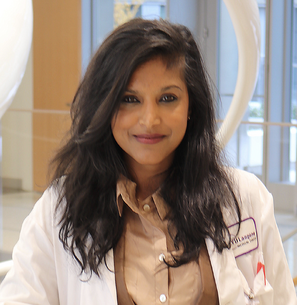 Tell us a little bit about yourself I am an Assistant Professor of Surgery and Cell Biology at New York University Langone Medical Center. I direct, mentor, train a team of diverse scientists to address specific questions regarding diseases affecting the vasculature such as aortic aneurysms. I am one of few women of minority background to hold such a position in a clinical department. You can read more about my research program and interest here: ncomms-10yr-ecr-ramkhelawon/ I won numerous awards including Académie de Médecine excellence thesis prize, UNESCO/L’OREAL women in science international rising talent award, the American Heart Association early career investigator award and recently the French-American Foundation Young Leaders award. I also participated in several events advocating for women in science. 'Women, as men should not have to MAKE the choice to focus on climbing their career ladder or decide to start a family (...) There is still a long road to ride.' What are your thoughts on the pressure that women face in having to make a choice between starting a family and progressing their career? Women, as men should not have to MAKE the choice to focus on climbing their career ladder or decide to start a family. Women, as men, should be able to do BOTH. Constraint of age, put unnecessary time pressure on women to conceive- this is unfortunately the biological effects of aging on the female body. Can we fix this? I think so. Science and technology has made so much progress that women can benefit from. Let’s imagine a scenario- all women in their twenties are offered the opportunity to freeze their eggs. Make a pause on aging through technology. Relieve the stress. Move on with their career. Decide to use the conserved eggs when they are ready OR if they would like to later on. Actually, whether to have children is the choice women should MAKE unpressured by time, social eye and biological differences between male and female anatomy. The reproductive system of women is very complex and understudied. Men and Women are biologically different. But alas, many of social, economical and medical decisions are still based solely on men neglecting female attributes. For example, for more than two decades now, there is an oral treatment for erectile dysfunction but we still don’t understand what is and how to treat endometriosis. It is not a fight between men and women-it is simply called - GENDER EQUALITY. There is still a long road to ride. I think we will probably reach equality between gender in science when we will start asking man the same question about family and career. What are the things that keep you motivated in your everyday life? Do you have any daily ritual that helps you stay consistently motivated and balanced? Being a scientist comes with its own trail of stress and challenges. But there are some unique moments that nourish my drive as a scientist. Those Einstein moments-at a microscale level. Where you get to perform an experiment to address a question-and it works. Feels fantastic. Feels like the first bite of ice cream on a hot summer day. But next minute you are thinking about the next question. I have similar passion about many unknowns and unexplained events in our everyday lives. My head is full of questions and I love to experiment. I am excited about new and many adventures in life. Managing, directing and mentoring the next generation of scientists cultivates my motivation. Developing ideas in a diverse and inclusive team sustains my enthusiasm. Promoting women and underrepresented communities in science is very gratifying. 'Promoting women and underrepresented communities in science is very gratifying.' What advice would you give yourself if you were starting your career today? What would you say to encourage other women to persevere in their career path? The same things I did a couple of years ago. Be strong, bold, brave, passionate, hard working, smart, learn the best from the best- be THE woman. Never let someone else tell you who you are. Learn to know and define yourself-all of yourself-from brain to feet. The fastest route is not always the straight one. Identify your strength and use it to push yourself forward and fight your weaknesses. More advice from junior investigators here: https://www.navbo.org/resources/lessons-learned 'Never let someone else tell you who you are. Learn to know and define yourself-all of yourself-from brain to feet. The fastest route is not always the straight one.' 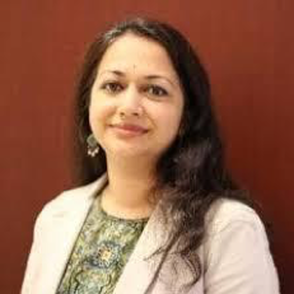 Tell us a little bit about yourself I am a scientist by training. I’m a Buckeye having received my PhD in Microbiology from the Ohio State University. I was part of the team that discovered the 22ndamino acid, Pyrrolysine. After my PhD I went on to pursue a post-doctoral fellowship at MIT. My research focused on fundamental science and understanding of protein synthesis mechanisms in Archaea. My career began as a scientist followed by technology licensing and business development at MIT and the Boston area. I later moved to Atlanta and joined Emory in 2014 as the industry partnership liaison for the Woodruff Health Sciences Center. In 2019 I became the Executive Director of the Office of Corporate Relations for the university. My role at Emory is to provide a “front door” for industry to connect with the right resources within Emory in order to further their objectives and support Emory’s research, education, and healthcare mission. collaborate with teams within and outside of Emory to determine synergies where partnerships can be initiated or expanded in order to solve real world problems and advance innovation. I am also a trained Indian classical dancer and singer. In my spare time, I continue to teach both artforms. 'Women have always needed to go more than the extra mile to rise above the background.' What do you think the roadblocks are to representation of women in science? How can we improve women’s visibility in science? I feel the roadblocks for women are that the biological clock and the tenure clock or climbing the corporate ladder are exactly at the same time. This makes for hard choices for a career in science for women. Women can shine in roles early in their careers if they have support with child care at home. Women have to take a hard look at the opportunities in front of them and make the right decision for their circumstances. There are relatively fewer women in leadership positions to serve as role models and that is yet another issue. Women have always needed to go more than the extra mile to rise above the background. I think men and women in the community need to understand this issue for the sake of their wives, sisters, mothers, and daughters. They need to mentor, advise, and nominate women they know to leadership positions. I feel saddened that even in this day and age we still need to be talking about unconscious biases and the inequities between men and women. We will all have to come together as a society to improve women’s visibility in science. Encouraging education in S.T.E.M.is a key first step. I feel that the government and employers need to take appropriate steps to help remove obstacles in the path towards success for women in science. Government should also put in place inducements during elementary and middle school education for girls to explore the world of science. 'We all have to come together as a society to improve women’s visibility in science' What are your thoughts on the pressure that women face in having to make a choice between starting a family and progressing their career? The pressures that women face in having to make a choice between starting a family and progressing their career is immense. When women choose to start a family while working full time, they have to take a break from their careers to care for their young children. This coincides with the stage in their careers when they need to be giving 150% of effort to climb up the ladder. This dichotomy is one of the critical reasons for women lagging behind in careers since they are usually the primary caregivers for the young ones in their family. I always remember the saying “it takes a village to raise a child” and that is absolutely true for women and their careers. Society in the U.S. is designed for women to take a back seat with their careers when raising children. It starts with daycare costs and then to how k-12 operates. All school events occur during the work hours and as a working woman it is hard to make the choice of attending the events or not. As children grow older it gets better but there needs to be a support system that is lacking here to support women in S.T.E.M. Most of the S.T.E.M. careers require women to be physically at work and that adds to the burden. Careers in computer science, informatics, and public health, epidemiology are areas of S.T.E.M. where physical presence at work is not critical. Careers in these areas of science may be worth exploring for young women. 'The pressures that women face in having to make a choice between starting a family and progressing their career is immense.' What advice would you give yourself if you were starting your career today? What would you say to encourage other women to persevere in their career path? I am very passionate about science and research. I still get goosebumps when I read research papers that show breakthroughs in science and wonder what life as a scientist could have been for me. I would tell my younger self other than enjoy the work that you do, take initiative and make changes to your career path at appropriate times, especially when you know you have outgrown a role. Be adventurous and explore new opportunities as they arise (or create new paths). 'Be adventurous and explore new opportunities as they arise (or create new paths).' 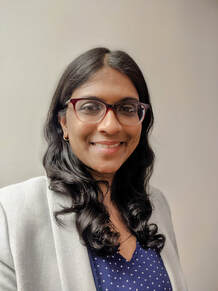 Tell us a little bit about yourself I’m currently a Biochemist at Chemeleon, a small biotech start-up in Brooklyn that is building rapid, easy-to-use colorimetric sensors for disease biomarkers and drugs of abuse. I moved to the US from India to get a degree in Biochemistry at Denison University, followed by a PhD in Microbiology at the University of Texas at Austin. I am passionate about protein and RNA folding as well as understanding how cellular organelles maintain their function under stress, which I was lucky to pursue during my time as a postdoc at Memorial Sloan Kettering Cancer Center. Over my academic career, I’ve had the opportunity to work in several fields ranging from structural and RNA biology to cancer biology and now really enjoy combining this expertise towards the development of biosensors. What do you think the roadblocks are to representation of women in science? How can we improve women’s visibility in science? Growing up I assumed most scientific discoveries were done by men and learnt very little about the contributions of women to different scientific disciplines. Bringing these contributions to light in classrooms to highlight that women researchers were also making critical discoveries all through history and discussing the unique challenges they faced would be of great value. Having more young women scientists engaging with students in classrooms and answering important questions posed by the media is also important to help fight the current stereotype of the scientist. 'Highlight that women researchers were also making critical discoveries all through history and discussing the unique challenges they faced would be of great value.' In your opinion, what is the best way to maintain work-life balance? It’s important to be clear what your priorities are in both your career and personal life and dedicate your time accordingly. These priorities can change often, especially in a start-up, so I often reevaluate based on the needs of the coming weeks and make sure the goals are manageable. It’s also okay to say no sometimes and be clear about what can be reasonably accomplished within a certain time frame in order to manage expectations. 'It’s also okay to say no sometimes and be clear about what can be reasonably accomplished' What advice would you give yourself if you were starting your career today? What would you say to encourage other women to persevere in their career path? Reach out and join communities around you that share common interests, whether it’s science policy, STEM outreach, activism or entrepreneurship groups. It will help give you insight into how you enjoy engaging in science both in your career and personal life as well as provide you with a strong supportive network of mentors. 'Reach out and join communities around you that share common interests (...) It will help give you insight into how you enjoy engaging in science' 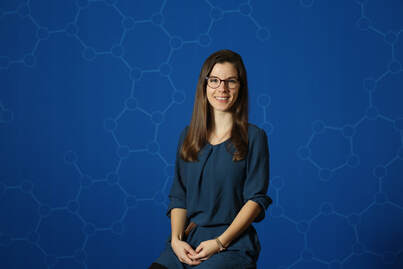 Tell us a little bit about yourself I moved to Long Island in 2019 to start my own research lab as a Fellow at Cold Spring Harbor Laboratory. We study how the immune system distinguishes between self and non-self to effectively fight infection and prevent autoimmune diseases. I originally trained in molecular biotechnology with a wet-lab focus on synthetic biology and immunology. For my PhD I switched to computational biology, ‘picking up’ math and statistics on the way, to develop models for analyzing high-dimensional phenotype data and association analysis of human cardiac morphology data. Cold Spring Harbor Laboratory hired me as Fellow directly after my PhD. This faculty position uniquely allows me to bring together my long-standing interest in immunology with my skills in high-dimensional data analyses and statistical methods in my own independent research group. We develop new experimental and computational approaches to understand how gene expression heterogeneity is regulated during T cell development in the thymus. What do you think the roadblocks are to representation of women in science? How can we improve women’s visibility in science? Many of the issues on representation of women in science have been discussed for many years, long before I became a scientist myself. It seems like the issues are known, but discussions often stay theoretical without practical impact. Worse even, the burden of trying to make a change is often placed on the minority group, here women – this takes away from time that can be spent on research or other ‘productive’ efforts, putting women in a further disadvantage. We need male allies on all levels, direct peer to peer support and, importantly, allies in leadership positions. We need leaders to fully acknowledge the issues of underrepresentation and obstacles and need their full commitment to bring about practical change. This includes not only transparent recruitment efforts but also creating and establishing supportive work environments and equitable opportunities. In your opinion, what is the best way to maintain work-life balance? Work-life balance means different things for different people. So first, find out what it means for yourself and determine your priorities – not what you think other people expect. How flexible do you want to be and how flexible can you be with your responsibilities at home and at work? I found these answers for myself and use them to establish boundaries. This includes prioritizing projects, learning (still in the progress) to say ‘no’, and learning (also still in progress) not to feel guilty when I cannot stick to my own rules. What are the things that keep you motivated in your everyday life? Do you have any daily ritual that helps you stay consistently motivated and balanced? I do not have a daily ritual per se – I try not to set too many additional ‘must do’s’ that I feel bad about when I don’t manage to do them. In the past half a year, I’ve enjoyed daily online yoga classes. Depending on the intensity level, it’s either a great exercise session or meditative. As I do it first thing in the morning, it is a great way to start the day before work. What advice would you give yourself if you were starting your career today? What would you say to encourage other women to persevere in their career path? Trust your instincts, have confidence in your own abilities, don’t compare yourself to others! The latter has been a crucial learning point for me and is something that I still have to tell myself on a regular basis. The further you get in your career, the less constant feedback you’ll receive. Find peers and colleagues in similar positions to share the good and bad and form peer-to-peer mentorship. 'Trust your instincts, have confidence in your own abilities, don’t compare yourself to others! ' 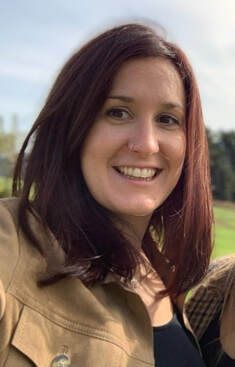 Tell us a little bit about yourself I was born in San Sebastian, a beautiful small city in the north of Spain, where I also studied Biomedical Engineering. After that, I moved to other cities around Spain to study a Master in Bioinformatics and finally I earned my PhD in Pharmacometrics in the University of Navarra. During my PhD I had the opportunity to do an intership in the Dana-Farber Cancer Institute in Boston and that was my first time in the states. I really liked the experience so I moved to New York to do a postdoc in the Icanh School of Medicine at Mount Sinai. After a year, I decided that I wanted to change academia to industry and now I´m working in AstraZeneca in Cambridge (UK) as a Clinical Pharmacometrician, where I use mathematical modeling and statistics to describe and predict drug response in patients, allowing the optimization of clinical trial designs. What advice would you give yourself if you were starting your career today? What would you say to encourage other women to persevere in their career path? Don´t be afraid of doing the wrong choice, making mistakes is part of the path, but correcting them is your responsibility. What would you say to encourage other women to persevere in their career path? The best advice for women and men to persevere in their career path is to enjoy what they do and don´t seek other’s approval to do what they like and make them happy. I don´t think that women need a different advice than men, if that happens means that the career path for women and men is different and it shouldn´t be different. Did you ever feel treated unfairly at work because of your gender and how did you deal with that? No, I did not. However, if I ever experience such a thing, I know that I will not accept that situation. I will encourage women that are treated unfairly not to be silent because then they are normalizing a situation that is far from normal. People that behave in such a way should never have the comfort of our silence again. What are your thoughts on the pressure that women face in having to make a choice between starting a family and progressing their career? I think that in general it is difficult to start a family and progress in your career both at the same time. Sometimes you need to postpone one or the other. However, this is not a decision that women need to make, this is a decision that a couple needs to make. We need to make men understand that this is an all-gender question that they´ll need to ask themselves at some point in their lives, make them aware that probably they´ll need to sacrifice a bit their career for some time if they want to start a family, that raising children is not a women thing. 'Don´t be afraid of doing the wrong choice, making mistakes is part of the path, but correcting them is your responsibility.' |
Archives
May 2025
Categories
All
|
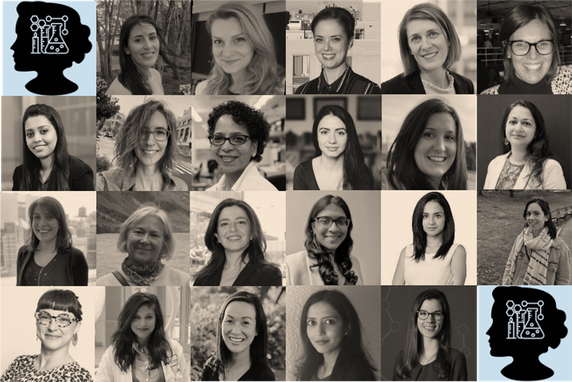
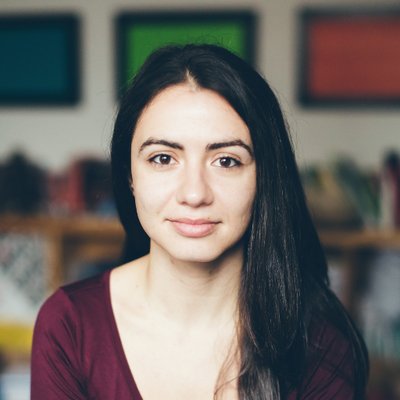
 RSS Feed
RSS Feed